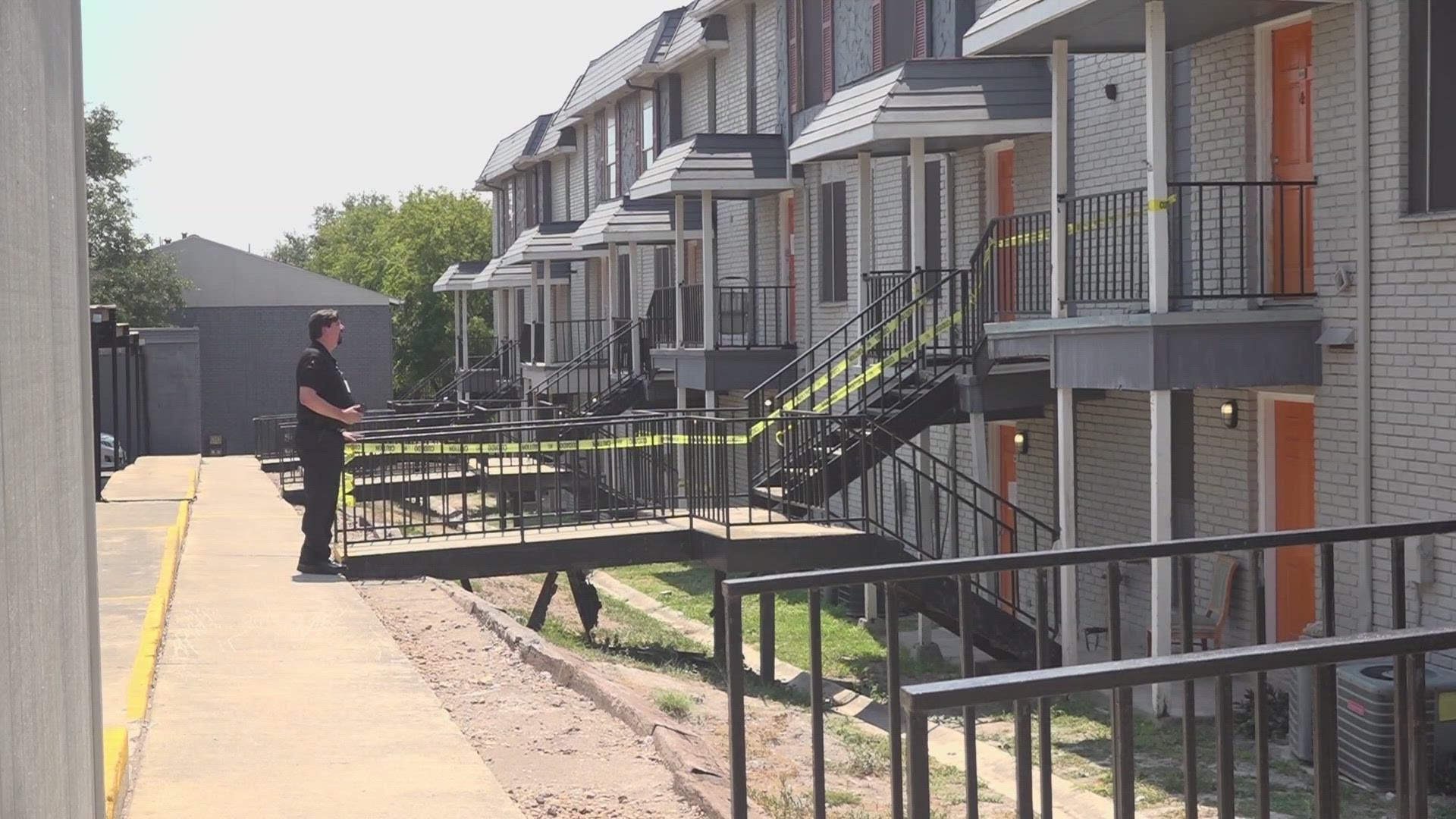SAN ANTONIO — If a tenant is about to be forced out of their apartment, due to safety issues, on the seventh day of the month, should they still pay rent for that month? That's the questions many tenant are asking at the Aristo at Medical Apartments this week.
The City of San Antonio is threatening to revoke certificates of occupancy at the apartment complex after finding violations that create "an immanent threat to the health and safety of your residents" according to a notice posted on multiple apartment buildings on September 1. The complex also had a "sudden and catastrophic collapse of a stairwell" last week, according to the document, which sent one person to the hospital.
If the complex doesn't fix all the issues for each building, the City of San Antonio could start pulling certificates of occupancy this Friday and people could be forced to find other living options. Tenants told KENS 5 that puts them in a difficult situation with rent. Why pay a whole month's rent, they ask, if they are going to be paying for a new place in a week?
KENS 5 spoke to Lone Star Legal Aid's Eviction Rights Managing Attorney Eric Kwartler about the issue this weekend.
Kwartler said a tenant has the right to end their lease if their building is ruled unsafe and they are forced to leave. He said any tenant who want to end their lease for this reason must inform the landlord in writing. The rent issue, he said, is more complicated.
Kwartler said the safest thing for a tenant to do is still pay the rent. At the same time, he said, it would be "like pulling teeth" to get the landlord to return any of that rent if they ended their lease in the middle of the month for safety issues. That means they could potentially lose hundreds of dollars by paying for an unavailable apartment.
A second solution, Kwarlter said, would be to try and get apartment complex management to agree in writing to an initial payment for seven days of rent, and then allow the tenant to pay the rest later if the issues are resolved. If a tenant tries to do this, Kwartler said, everything needs to be documented.
"Get it in writing, don't trust them," Kwartler said. "Make sure you get the agreement in writing, make sure you get recipes, and you keep them.... but you could do that in theory."
Finally, the last solution would be to not pay the rent at all. Withholding rent is almost always a bad idea for a tenant, as it gives the landlord any easy excuse to evict people or to not do repairs in the first place. In this case, Kwartler said, tenants have some tough decisions to make.
If a tenant does not pay rent, a landlord can start eviction proceedings. But, in this case, Kwartler also pointed out that it takes much longer than seven days to evict someone and, if the tenant leaves the apartment, they can not longer be evicted. If a tenant intended to leave, and left when the city forced them to vacate, they wouldn't have any reason to worry about eviction court.
"You have to give a three day notice to vacate. If they don't move you can file an eviction. But after that it has to go to court which takes time because courts are busy. We are talking weeks to get a court date and even then you have five days to appeal," Kwartler said.
Secondly, if a tenant left without paying rent, the landlord could still try to take them to court to recover that money. Kwartler said tenants would be legally vulnerable, but it may not be worth the cost for a landlord to sue multiple tenants for a single week of rent each.
"They would have to take certain measures to actually collect from the tenants that would probably be more onerous than a landlord that is already facing a condemnation of their property could handle," Kwartler said. "Especially for one weeks worth of rent."
Kwartler also pointed out that dealing with a court case, or paying owed rent later on, is better than being homeless because a person can't pay for a new apartment.
"It's the tenants choice. There are consequences to both. But in my experience, having housing is the most important thing. You can worry about owed rent later. You can't worry about being on the street later," Kwartler said.

